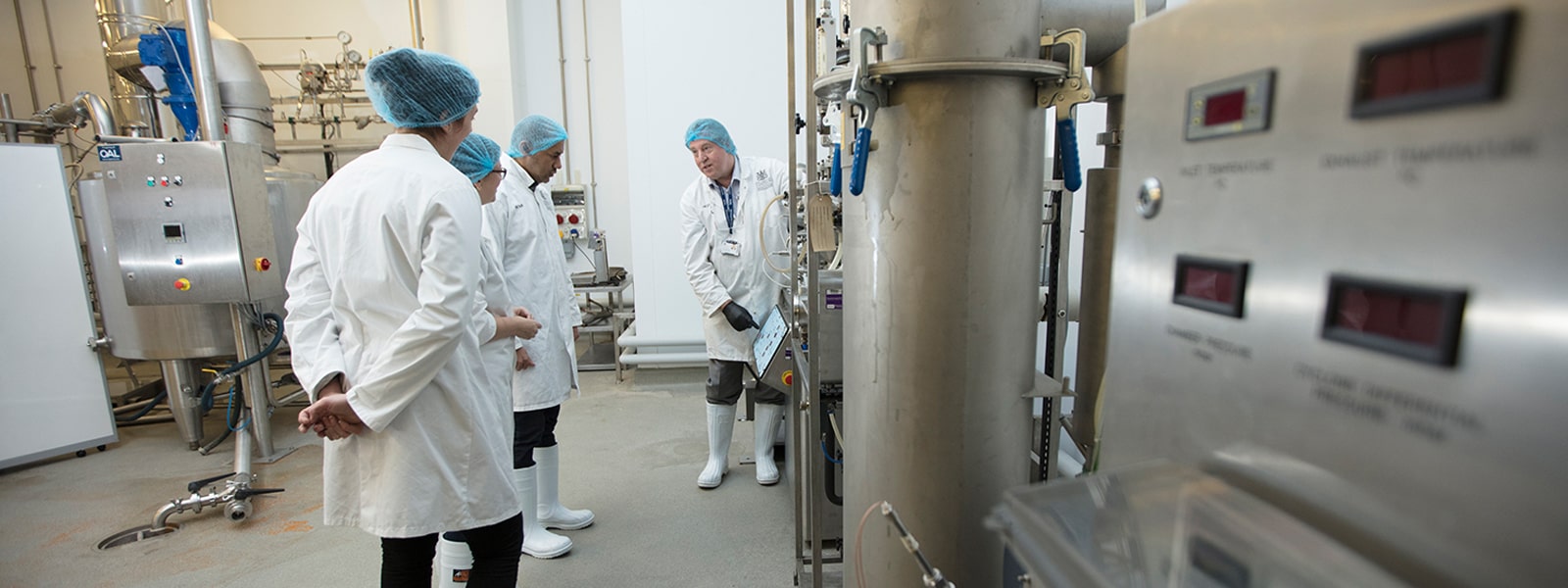Introduction to the Apprenticeship
The food and drink sector is one of the largest, most dynamic, and fastest growing sectors of industry. Food and Drink Engineers maintain, manage, and install a diverse range of specialist equipment and technology used in the manufacture of food and drink products. They combine engineering competence with an understanding of the principles of food safety, science, and technology, and their focus is on managing, maintaining, and continuously improving existing assets within the confines and unique challenges of the sector which include the variability of the product itself, the legal and regulatory framework, environment factors, and customer and consumer expectations and standards.
Food and Drink Engineers usually work as part of a team including other engineers and will interact with other functions and teams within their own company such as manufacturing, production planning, health and safety, and quality. They fulfil a variety of functions within food businesses, dealing with mechanical engineering, electrical engineering, process development and project engineering. There are many Engineering roles that are suitable for this programme including Continuous Improvement Food and Drink Engineer, Food and Drink Electrical Engineer, Food and Drink Mechanical Engineer, and Food and Drink Reliability Engineer.
Apprenticeship Standard
For more information about the Level 5 Food and Drink Engineer apprenticeship standard, please visit:
https://www.instituteforapprenticeships.org/apprenticeship-standards/food-and-drink-engineer-v1-1
Foundation Degree Modules
The standard supports those working towards or managing engineering teams that are achieving departmental goals and objectives as part of their organisation’s overarching strategy. They will be accountable to a more senior manager or a business owner.
Modules studies include:
- Food Components and Materials for Food Engineers
- Food Quality Assurance, HACCP, and Hygiene
- Maths for Engineers
- CAD and Technical Drawing
- Engineering Mechanics
- Introduction to Robotics
- Electrical and Electronic Technology
- Health and Safety, Energy, and the Environment
- Food Factory Design
- Food Packaging Systems and Machinery
- Food Process Engineering
- Industrial Continuous Improvement
- Applied Thermofluids
- Mechatronics
- Options depending on Pathway:
- Solid Body Mechanics
- Dynamics and Vibrations
- Analogue Electronics
- Digital Systems and Microprocessors
Apprenticeship End Point Assessment
Apprentices typically spend 30 months on-programme working towards the occupational standard and meet all the off-the-job requirements for an apprenticeship before the Gateway to End Point Assessment.
The EPA should start once the employer is satisfied that the apprentice is consistently at or above the level set out in the standard. Apprentices need to have English and Mathematics at level 2 prior to taking the EPA. The EPA typically is completed within a 6-month period after meeting EPA gateway requirements.
The EPA consists of 3 discrete methods of assessment:
- Work based Project, consisting of report & presentation with questioning
- Test, multiple choice and extended answer
- Technical Interview, underpinned by a portfolio of evidence
For more information on the EPA, please visit:
Contact us for more information about how to apply: ncfm@lincoln.ac.uk or 01406 493000
Connect with Us
 |

|

|
 |
The Centre of Excellence in Agri-food Technology, Holbeach, Spalding PE12 7FJ

